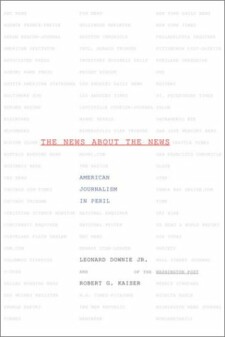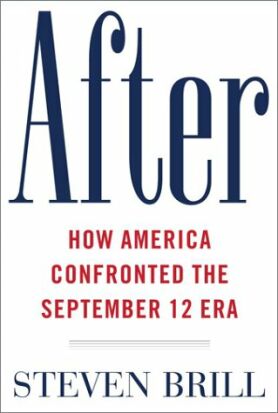Vision Correction
My favorite Democrat is Ruy Teixeira, a Washington think-tanker who has lately migrated from the increasingly left-wing Center for American Progress to the not exactly right-wing American Enterprise Institute. Ruy has a substack called The Liberal Patriot which is remarkably clear-sighted about all that is wrong with today’s Democratic party, particularly the way in which it has spurned the traditional allegiance of America’s blue collar laboring classes in favor of the new elites of the information economy who dominate the government, the media, education, entertainment and even big business.
But Ruy is also remarkably myopic, in my opinion, about his party’s capacity for change and renewal. No matter how insane or remote from the everyday concerns of ordinary folks are the Democrats’ policies under the Biden-Harris régime, no matter how many of their traditional supporters they appear to have alienated, Ruy is forever proposing a tweak here or a tweak there that will, he believes, correct the problem and so bring the old-time Democrats back home again to the quondam Party of the Working Class.
Maybe the problem will even correct itself. Recently The Liberal Patriot purported to explain “Why Democrats Will Become Energy Realists.” The short answer? “There is no alternative.” Ruy, Ruy. How little you know them after all. For the new Democrats, there’s always an alternative to realism — and, indeed, to reality itself. Having thrown in their lot with the party’s fashionable ideologues in higher education and the media, they always have the option simply to stick their heads in the ideological sand, confident that their most loyal supporters — along with those they have frightened half to death with the spectre of environmental apocalypse, and/or another Trump administration — will do the same.
I would argue that the Democrats’ preserving for themselves this opt-out from reality is the reason why they have turned from the interests of regular Americans to ideology in the first place — because they hear from their ideological brethren the siren song of inerrancy. You can never be wrong, if you stick to the ideology, because the ideology, being as it is supposed to be “on the right side of history,” can never be wrong.
Here’s another recent headline from The Liberal Patriot. “The Democrats’ Patriotism Problem Revisited” — which is subtitled: “The patriotism gap remains.” You have to wonder if a “patriotism problem” isn’t a bit more than just a “problem” for a political party with aspirations to win elections in a healthy democracy. Perhaps it’s more of a patriotism problem problem. Perhaps ours is not a very healthy democracy.
Ruy recognizes in the very title of his Substack that — historically, anyway — it is not enough for a mass political party in America to be simply “liberal.” As patriotism is inherently conservative, it has always been important in the past for liberals to reassure the vast majority of patriotic Americans that their deviations from the rest of the conservative program do not imply any less love of country on their part.
Indeed, I seem to remember those old-timey liberals announcing that “dissent is the highest form of patriotism” and attributing the saying (erroneously) to Thomas Jefferson. This dubious proposition, which originated among opponents of the Vietnam War back in the 1960s and was popularized by (among others) Mayor John Lindsay of New York (no Jefferson he), could still be heard during the Iraq War protests of the early 21st century.
But those protests are now as distant in time from the new generation of young protestors — who gathered this spring on college campuses across the nation to damn Israel and praise Hamas — as World War II was from those of the Vietnam era. And today’s protesting American youth don’t even bother to pretend to a higher patriotism, or that they have not aligned themselves with the sort of people who routinely cry “Death to America.”
Polling evidence also suggests that Ruy’s “patriotism gap” is real. Writing for The Hill, Kevin Wallsten and Jack Citrin note that
Liberals and conservatives and Democrats and Republicans have long diverged on questions related to patriotism, but the gap has increased sharply in the last decade. Today, liberals are significantly less likely than conservatives to feel that being an American is important to them, to express pride in being an American, and to believe there is a cultural core to America’s identity. They are more likely to say that other countries are better than the United States, that America is a racist society and that our political system requires structural transformation.
Some of this attitude is doubtless left over from the liberal reaction to President Trump’s “Make America Great Again” slogan. Remember former New York Governor Andrew Cuomo’s saying in reply that America “was never that great” to begin with. But the authors find that the liberal young are now particularly susceptible to such unpatriotic feelings:
More concerning, however, is the yawning generational gap in national identification and the greater ideological chasm among the young. The 2022 American National Election Study (ANES), for example, found a 36-point gap between liberals and conservatives over 65 on the question of how important “being American” is to their identity, with 60 percent of liberals and 96 percent of conservatives in this cohort saying that “being American” is “very” or “extremely” important to them. By contrast, the liberal- conservative gap among those under 30 (Gen Z) was 55 points, with only 18 percent of young liberals saying that “being American” is important to their identity. More recently, the Spring 2024 iteration of the Harvard Youth Poll found that 74 percent of 18-29 year old Republicans but only 55 percent of 18-29 year old Democrats would “rather live in American [sic] than any other place.” In the same poll, young Democrats (but not young Republicans) expressed far greater trust in the United Nations than in the U.S. military.
That last detail is the real “tell” as we attempt to puzzle out the childish ignorance of the young Democrats. No one who knew anything about the United Nations apart from the noble ideals promulgated as the reason for its founding, would trust it at all in any matter of importance. The idea is as laughable as that of the so-called “Queers for Palestine,” which would also appear to be the product of abysmal ignorance. Queers may be for Palestine, but Palestine is most definitely not for queers.
Such stupidity is not in nature and can only be the product of the ideological escape hatch from reality. To the protestors, the imaginary country of “Palestine” bears little or no resemblance to the geographical location or to the aspirant nation of that name. It is, rather, a symbol of their ideological rejection of the reality of nationhood itself, including that of the one Ben Wattenberg (another old-style Democrat from the American Enterprise Institute) used to call “The First Universal Nation” — i.e. the good old USA.
For 75 years Israel’s enemies have been America’s enemies and (not coincidentally) America’s enemies have been Israel’s enemies. Now that the nation of Israel is the enemy, at least among a prominent segment of our American elite culture, it can’t be surprising that this hostility among the young and impressionable now extends to their own nation.
But “the patriotism gap” may not even be the worst of it. “The slogan ‘Death to America’ is seemingly gaining steam among anti-Israel agitators, who have swept across the nation,” wrote Michael Lee for Fox News. I’m not so sure. That wish may be a little too obviously psycho-pathological even for the ideologically-besotted youth of the Ivy League. To be fair to them, it is not merely a narrow patriotism that they repudiate but an allegiance much bigger and more venerable. As David Frost, writing in the (London) Daily Telegraph, put it, “Islamists and the woke Left are uniting to topple the West.”
Similar ideas were expressed by Allister Heath (“We are the West’s last generation before the new ark Age begins”) and Michael Deacon (“If these mollycoddled anti-Israel students are America’s future, the West truly is doomed”), also of the Telegraph. We may hope that such prophecies of doom are a little overstated, but they are right, I think, to identify the object of the animus of the protesting youth in Britain (where they are equally prominent) and America not as their own country or even Israel, but the Western cultural tradition of which these nations are all representative.
In Britain, when Sir Keir Starmer, leader of the Labour Party and aspirant to become prime minister before the year is out, announced that his is the patriotic party, Mr Deacon noted that, even if it were true, the claim would do him little good with the young. It was instead “a surefire way to put off the next generation. Because many members of Gen Z believe that patriotism — or at least, British patriotism — is not just uncool, but actively shameful.” And he quotes an anonymous teacher whose class of 13-year-olds all claimed to hate Britain.
Having once been a teacher of British 13-year-olds myself, I strongly suspect this class of taking the Mick, as their fellow countrymen say. But the teacher is not wrong to note the tendency to promote such an attitude of a curriculum “packed with hand-wringing about Western imperialism and institutional racism” and “designed to open minds to the evils of Western civilisation.”
Sympathy for and advocacy of terrorist murderers is not limited to naughty children and those who have indoctrinated them in today’s brand of identity politics. Another name for identity politics is tribalism, and tribalism is also both cause and consequence of the breakdown of national loyalties, even among many of those of mature years, as noted above by Messrs Wallsten and Citrin. It’s certainly not surprising that kids are quick to pick up which tribes belong to the favored class of victims of oppression and which to their supposed oppressors.
Some of the most surprising people of my acquaintance have complained to me about how mean the Israelis are being towards the poor Palestinians — as if it were possible to fight a war without being mean to anybody. Ironically, as I believe, this bizarre attitude grows out of the attempt by military planners in America to conciliate an earlier generation of protestors. For they are ultimately responsible for the doctrines now being taught by and to our educational elite under the rubric of “peace studies” or “conflict resolution” with their fine calculus of “escalation” and “de-escalation” — supposedly to manipulate those who wish to kill you into changing their minds.
These doctrines have filtered down, through the media, to ordinary folk who have never fought a war nor taken a course in peace studies or conflict resolution but who now purport to believe that the Israelis might turn Hamas from deadly enmity to friendship by being nice to them, by “de-escalating” hostilities with a cease-fire, instead of killing them. That they do not do so then becomes a further reason for taking sides with the savage butchers of Hamas against them.
The popular fallacy of conflict resolution is related to another, and one with even more wide-reaching effects, that was introduced into our public life decades ago with what was and still is called multiculturalism. But multiculturalism, conceived in our own post-Vietnam, post-honor culture of the 1980s, never really lived up to its name and treated all of the multi-cultures as essentially the same, bar superficial differences of costume or cuisine. In particular, it never reckoned with the difficulty — some would say on current evidence the impossibility — of integrating a primitive honor culture like that of the Arabs (and many other Islamic societies such as that of Iran) into a modern Western culture.
The civilization created by that predominantly Christian culture has had millennia to rub the edges off the West’s own honor culture before, sometime in the last century, abolishing it — and relapsing, as it now seems, into a tribalism not altogether unlike that of civilization’s enemies in Gaza and too many other places in the world today.
Looked at in this way, the protestors of the new generation are the legitimate heirs of those who, back in 1987, were chanting at Stanford with Jesse Jackson, “Hey hey, ho ho/Western Civ has got to go.” They were protesting against that university’s then-required course in “Western Culture” — which duly went, at least partly as a result of those protests.
But Western Civ the thing was as much the object of their protest as Western Civ the course, as the Telegraph writers are not the only ones to have noticed it still is to today’s protestors. The supersession of tribalism by civilization in the West and, through Western “imperialists” and “colonialists,” in much of the rest of the world had already been taught to the young of the mid- 1980s in Marxist-Leninist terms as the suppression by colonial masters of indigenous cultures with at least an equal right to exist, even in spite of such barbarism as that which was put on display by one of those cultures last October 7th.
Maybe some good can come out of the student protests if they continue to provoke reactions, like that of Mr Deacon as mentioned above, in favor of Western Civilization. Similar things have been said by Brendan O’Neill of Spiked online who called the protests at Columbia University “A howl of rage against civilisation,” and Bruce Clark of UnHerd who takes up the argument of a recent tome by an academic named Josephine Quinn titled How the World made the West. This avers (according to Mr Clark) that “there is really no such thing as a civilisation, or even a distinct culture, and so there cannot be such a thing as a Western one.” To this view, Mr Clark rejoins that
The collective West is of course guilty of many historic sins, but it differs from totalitarian societies and resembles democratic Athens in the way it still (just about) retains the capacity for self-scrutiny, self-correction and no-holds-barred discussion. It is unlikely that a history professor in Russia, China or Iran would remain in place long after publishing a book arguing that their country’s civilisation was actually an illusion. Perhaps there is something magnificent about the fact that a book so wildly iconoclastic as Quinn’s can be published, and taken seriously: a perverse proof that the Periclean West is alive, so much so that people can deny its existence with cheerful impunity
Having come so far as to acknowledge both the existence of Western civilization and the presence in it of some (at least) good things, perhaps it won’t be long before the reaction to the reaction on our college campuses will begin to question some of those “many historic sins” mentioned by Mr Clark. For now that our far flung corner of the former Western Civ appears to be sinking back into tribalism itself after our long flirtation with what we were pleased to call civilization, perhaps we can begin to see some value in the mission civilisatrice of those old-time colonialist settlers, like the ones in Israel, even if their mission should ultimately fail.
Discover more from James Bowman
Subscribe to get the latest posts to your email.







